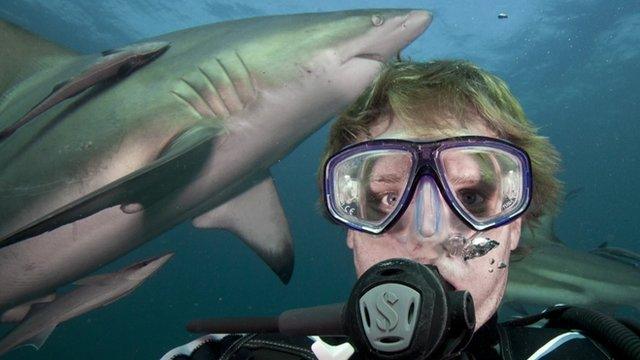More great white sharks in California is a good thing - say scientists
- Published
- comments
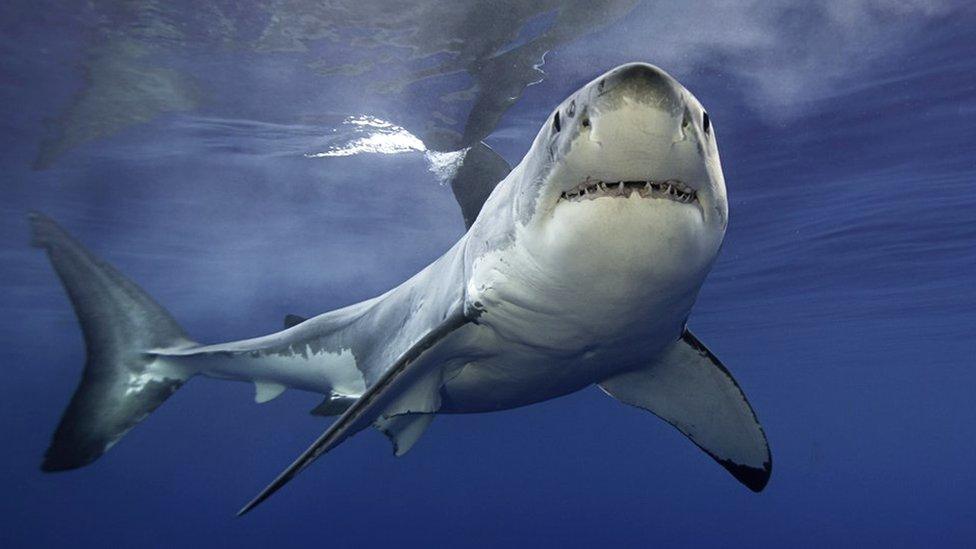
Now seeing black fins in the water around the California coastline might sound like a scary movie, scientists are saying it's actually great news .
Great white shark numbers are on the rise near California, according to a study, published in the Biological Conservation Journal.
Results suggest that great white shark numbers there have increased by around 35% in the last 10 years.
They said that seeing an increase in the number of top predators is a good sign, as it shows that the numbers of other creatures like seals and fish - which get eaten buy sharks - may also be doing well.
To be able to sustain more sharks, they need more to eat.
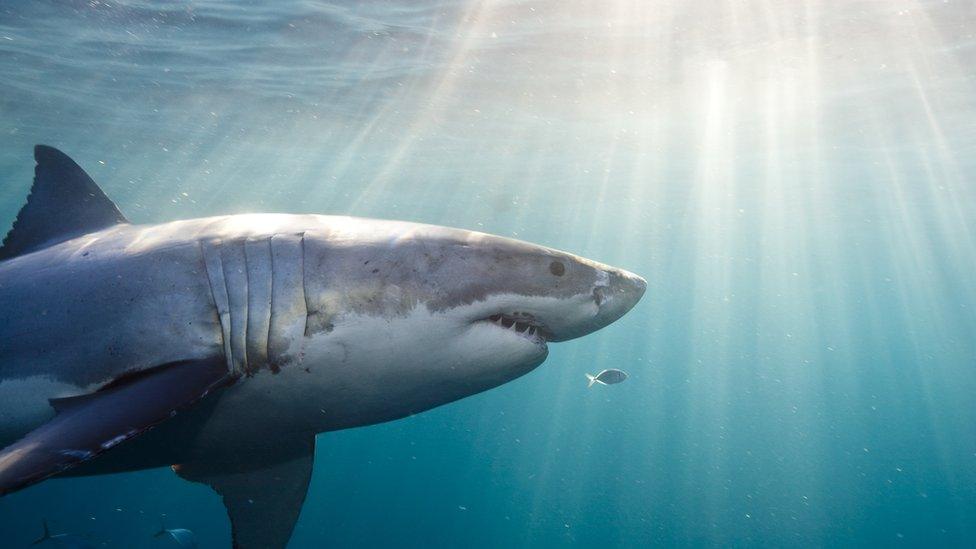
Between 2011 and 2018 a team of researchers from Stanford University and the Monterey Bay Aquarium identified nearly 300 individual great white sharks at three areas where the sharks are known to gather - Farallon Island, Año Nuevo Island, and Tomales Point.
Marine ecologist Paul Kanive, who was the lead author of the study, said: "A healthy population of white sharks means there are healthy populations of the sea lions and elephant seals they eat.
"And that means that the lower levels on the food chain, like fish, are healthy enough to support the marine mammals."
As apex predators - that means the top predators - great white sharks help to control the population of other animals.
For example in 2008 a report by ocean protection organization Oceana found that a decline in large shark populations along the eastern coast of the U.S. could be linked to an increase in ray, skate and smaller shark populations.
This then had a negative effect on some fishermen, as creatures like the cownose ray wiped out the scallops, clams and oysters in the area.
They have around 300 teeth, in seven rows! (I wouldn't like to be their dentist!)
Great whites can grow to be around 4.6m long, but some have been measured at 6m - that's half the length of a bus!
They also have an excellent sense of smell. They can detect a colony of seals from two miles away. And - if there was only one drop of blood in 100 litres of water, a great white would smell it!
Oceana said in the report: "As top predators, sharks help to manage healthy ocean ecosystems. And as the number of large sharks declines, the oceans will suffer unpredictable and devastating consequences."
Paul Kanive and his team said their research has made them "cautiously optimistic" about the population of great white sharks in the California area.
- Published8 August 2014
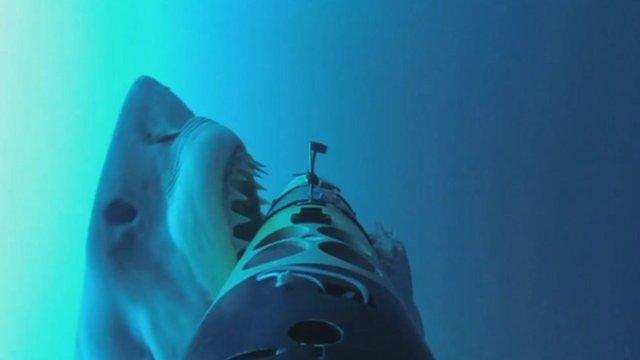
- Published19 February 2019
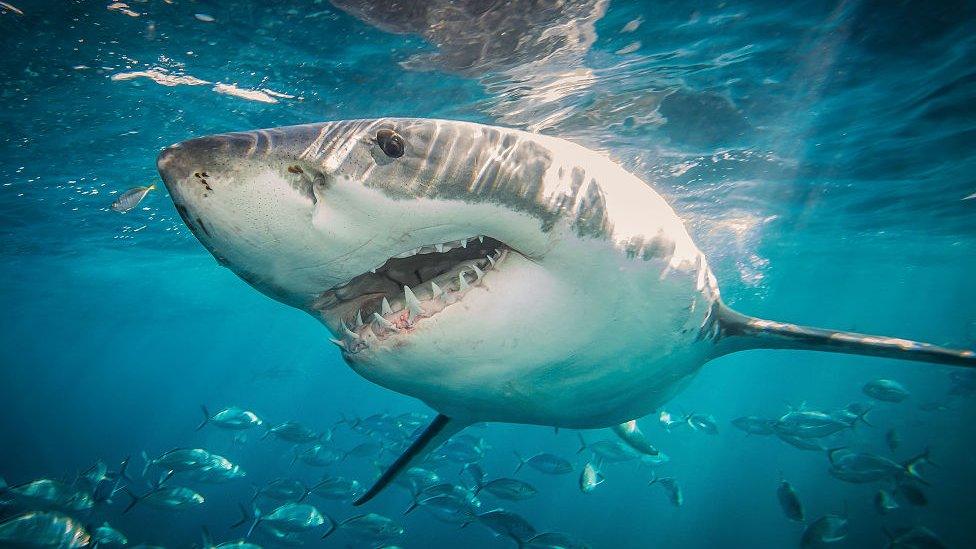
- Published19 January 2015
